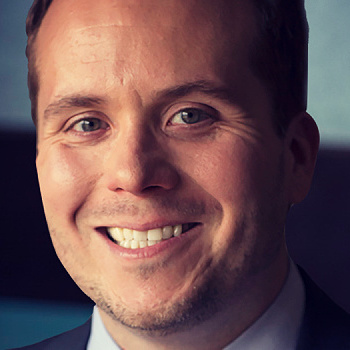Financial advisors have a huge opportunity to help their clients with tax issues—if they have the courage to offer that help.
The problem, according to tax expert Jeffrey Levine, chief planning officer at Buckingham Strategic Wealth, is that many advisors believe providing tax assistance to their clients is tantamount to providing tax advice, which could leave them open to liability.

“Tax advice is actually saying to someone ‘pay yourself $72,000 of salary and leave,’” said Levine in Tax Something Something, a recent episode of the Standard Deviations podcast hosted by Daniel Crosby, chief behavioral officer at Orion Advisor Solutions. “Showing someone an illustration, saying ‘here is what this looks like in the future,’ is not tax advice. There’s a gray area… and so I think advisors need to get comfortable getting into the weeds there.”
Clients and prospects from the mass affluent level all the way up to the top tiers of net worth are increasingly demanding help making tax-related decisions, said Levine. Even as marginal tax rates have declined for many Americans, taxes remain a “hot-button issue.”
Advisors can engage with clients’ taxes in four meaningful ways, Levine said.
Review
Once a client has had their tax return prepared for the year, a financial advisor can add value merely by reviewing that return.
“Do a review of the prior-year tax return and make sure that everything you’ve done was reported properly there,” said Levine. “I’ve seen so many instances where an advisor comes up with a great idea… and it’s not reported.”
There’s a disconnect between advisors, clients, and clients’ tax professionals, said Levine, that results in backward-looking tax management and unreported deductions. For clients to get the most out of planning moves like Roth conversions, qualified charitable donations from IRAs or bunching deductions, advisors need to make sure they’re on the same page as tax preparers.
The advisor also serves as an additional backstop to make sure the return accurately reflects the client’s yearly tax picture.
Project
Tax preparers and most tax accountants are backward-looking, they are most concerned with filing an accurate return representing the year that’s already passed. Advisors, on the other hand, are forward-looking, often planning decades into a client’s future.
Advisors have an opportunity to offer insight into what a client’s tax future might look like, said Levine. This especially has value in October, November, and December, as clients have key decisions to make regarding retirement accounts, contributions, and deductions.
“Especially if you are thinking about doing things like Roth conversions or taking gains and pulling off certain amounts from a taxable account, or perhaps taking advantage of the 0% long-term capital gain rate, you want to do projections later in the year… after the extended deadline has passed,” he said. “Get those CPAs involved and do those projections, so you have a better handle of what’s actually happening for the year, so you know how much to convert, or how much to take as gains.”
Portfolio
Many advisors and asset management platforms already aid with tax harvesting to their clients, said Levine, but there’s still value to be added in tax-optimizing a client’s portfolio.
“Tax location or asset location are still a huge value-add for a lot of advisors and for a lot of clients,” he said. “Overlaying your asset allocation pie over your asset location pie, taking your taxable, tax-deferred, and tax-free accounts, if you think of them as a pie chart, and overlaying them on a pie chart of your other investments. Where do you put your stocks? Do they go into the traditional IRA or the taxable account? Doing that appropriately can add significant returns to the net return of the client portfolio.”
Planning
Advisors, because of their forward-looking attributes, can help clients think about taxes on a multi-year basis.
“The winner of the tax-planning game is not he or she who pays the lowest tax bill in any one year, it’s he or she who pays the lowest tax bill over their lifetime,” said Levine. “In some cases, because many of our clients have done so well, it’s not only their lifetime, but also their lifetime plus perhaps their children or even grandchildren’s lifetime.”
When advisors look over that long period of time, sometimes the things they recommend may have a detrimental effect on a client’s current-year tax return but be a “home run” over the longer term, said Levine. These multi-year or generational benefits are typically not the concern of a tax preparer.
Tax Tips for the Average Joe
Levine also had some tips to help Americans in general mitigate their tax burden.
In 2017, the Tax Cuts and Jobs Act raised the standard deduction to $24,000 for married couples—it’s $26,000 today, according to Levine—which means most taxpayers have little reason to itemize, as their accumulated deductions rarely exceed the standard deduction.
One way to try to break that cycle is through bunching deductions in a specific tax year—holding off contributions or certain expenses until one year where a tax break is gained through itemization. Vehicles like the donor-advised fund make this easier to accomplish with charitable giving.
More individuals today qualify for business deductions than in previous years, said Levine, as the so-called “gig economy” and side hustles have become more commonplace.
“They’ve got something else now here they have the ability to have their own business deductions,” he said. “There it’s a matter of what can we find that’s an ordinary and necessary expense of that business.”
Finally, people should consider seeking the advice of a tax professional, said Levine, if not annually, then at least periodically. Tax professionals can make sure that individuals are filing their returns accurately and point out additional areas where taxes might be mitigated. In some cases, a financial advisor can provide this sort of assistance as well.
Dr. Daniel Crosby is Chief Behavioral Officer at Orion Advisor Solutions, and a psychologist and behavioral finance expert who helps organizations understand the intersection of mind and markets. Dr. Crosby recently co-authored a New York Times Best-Selling book titled, “Personal Benchmark: Integrating Behavioral Finance and Investment Management.”







